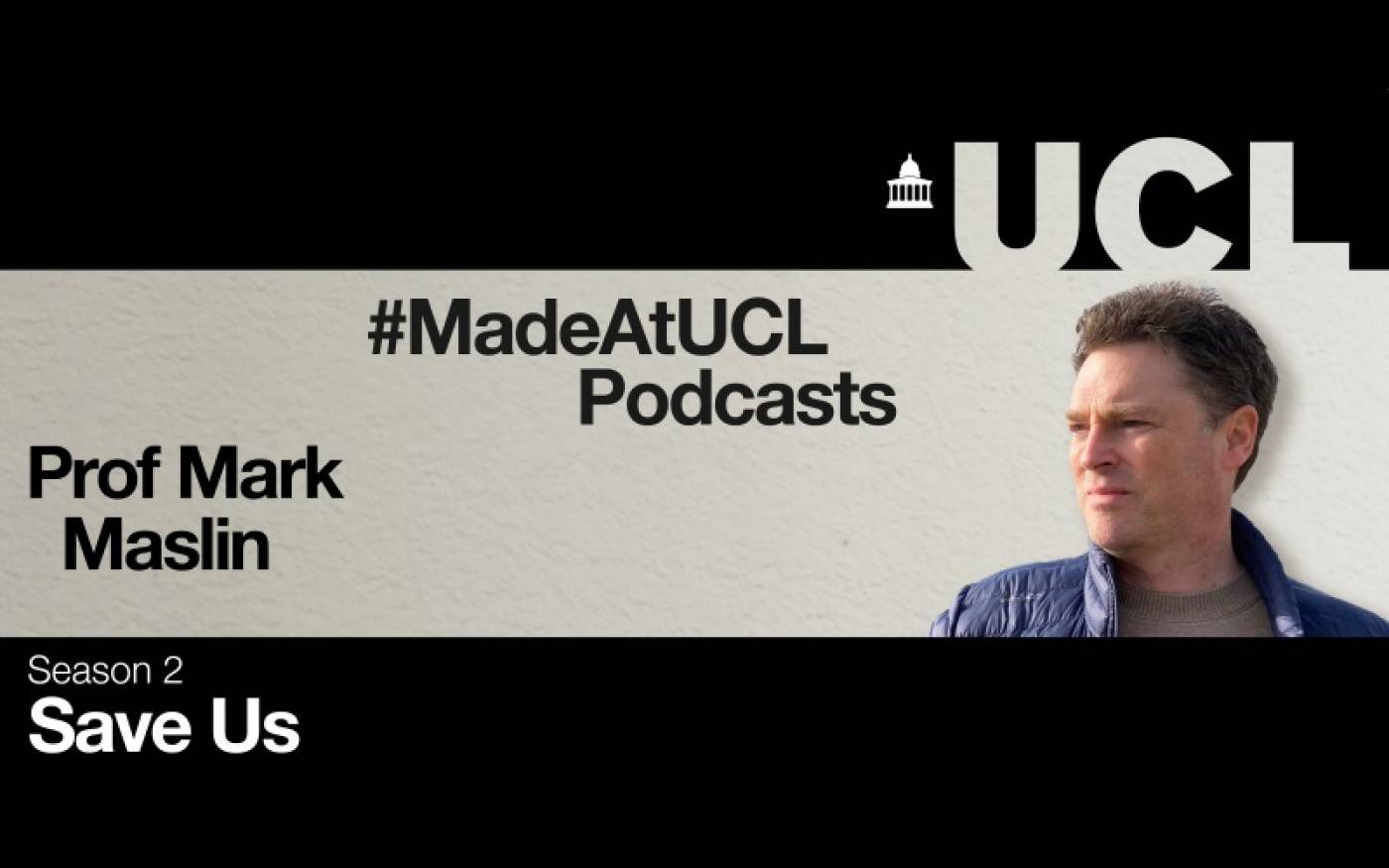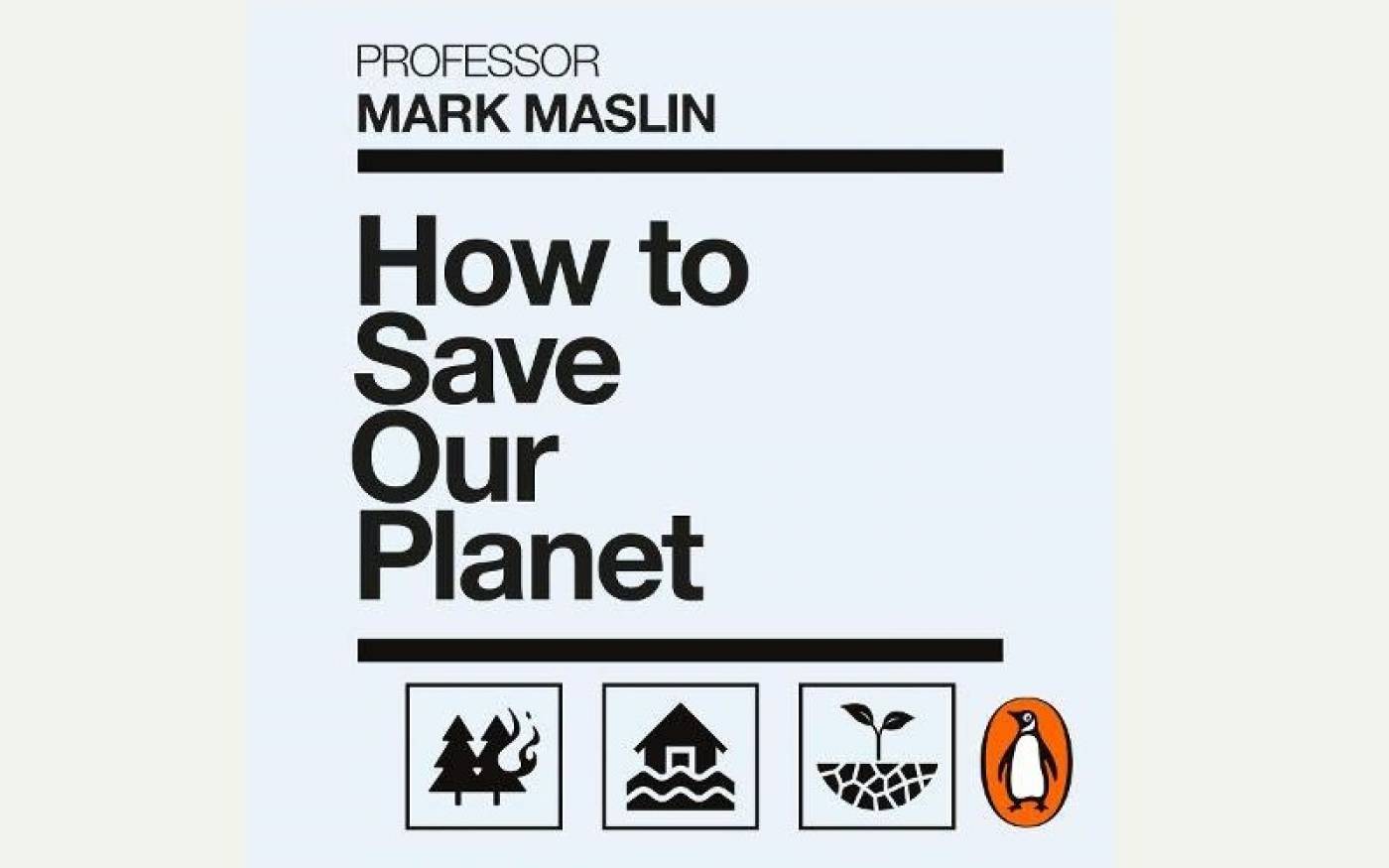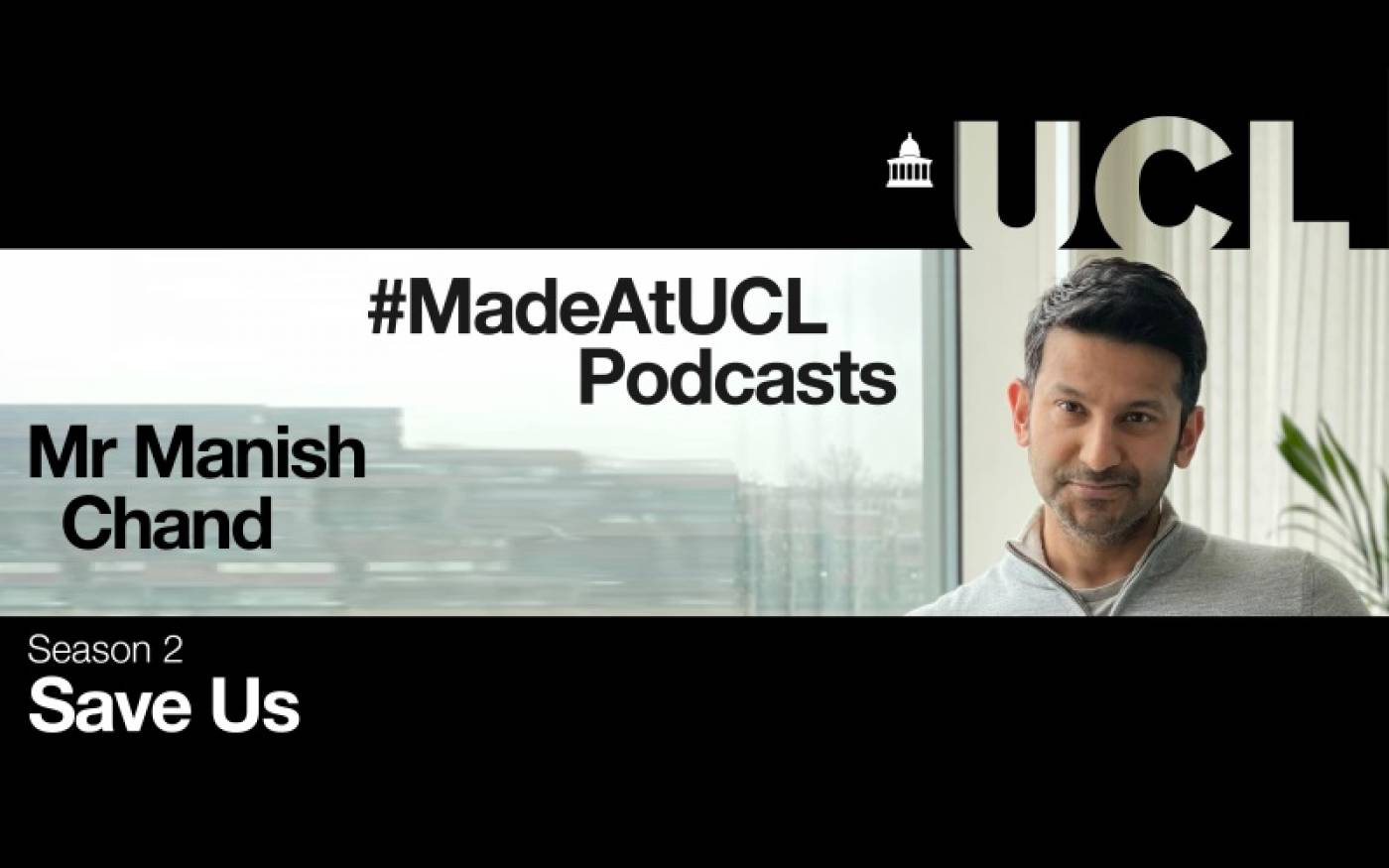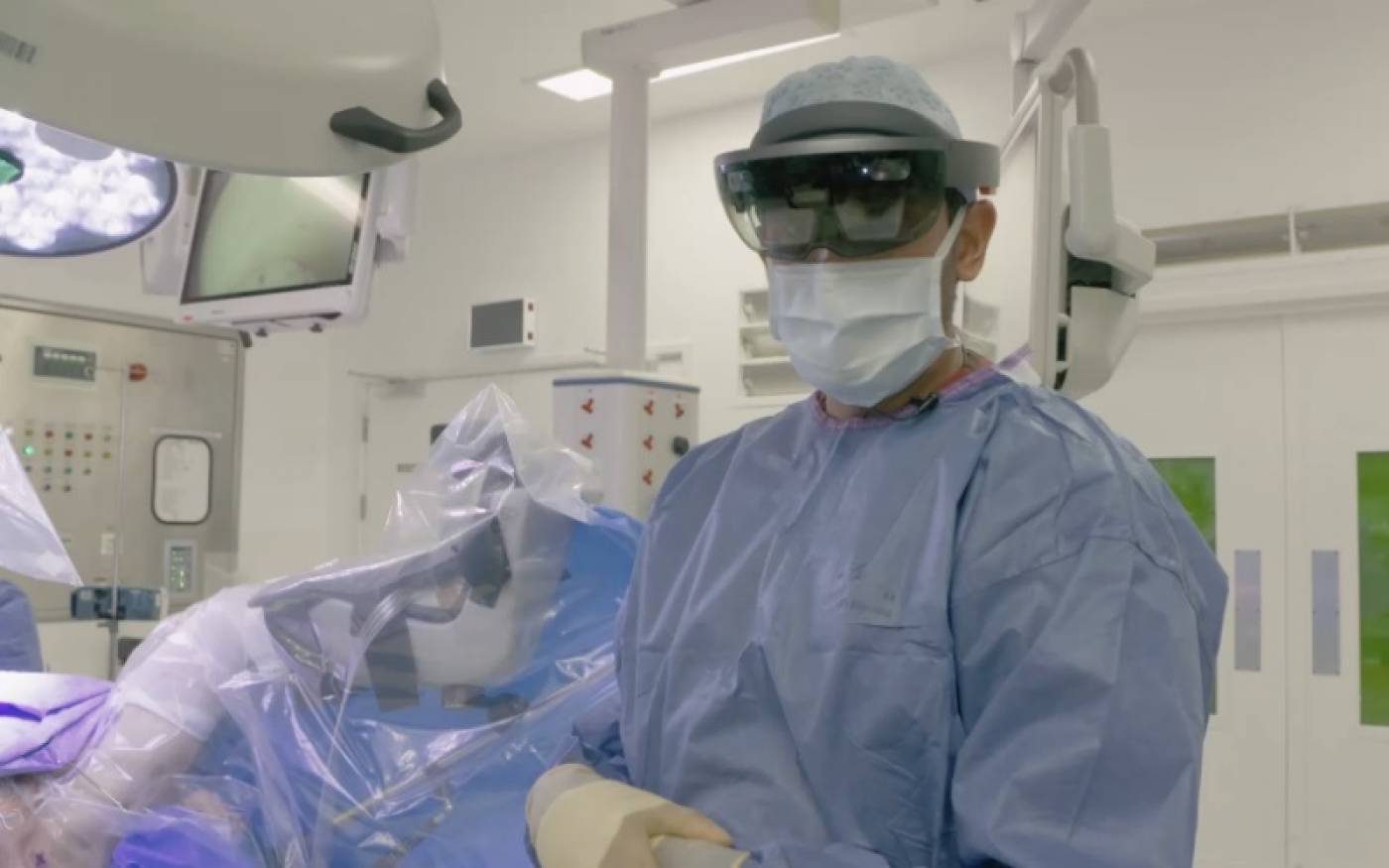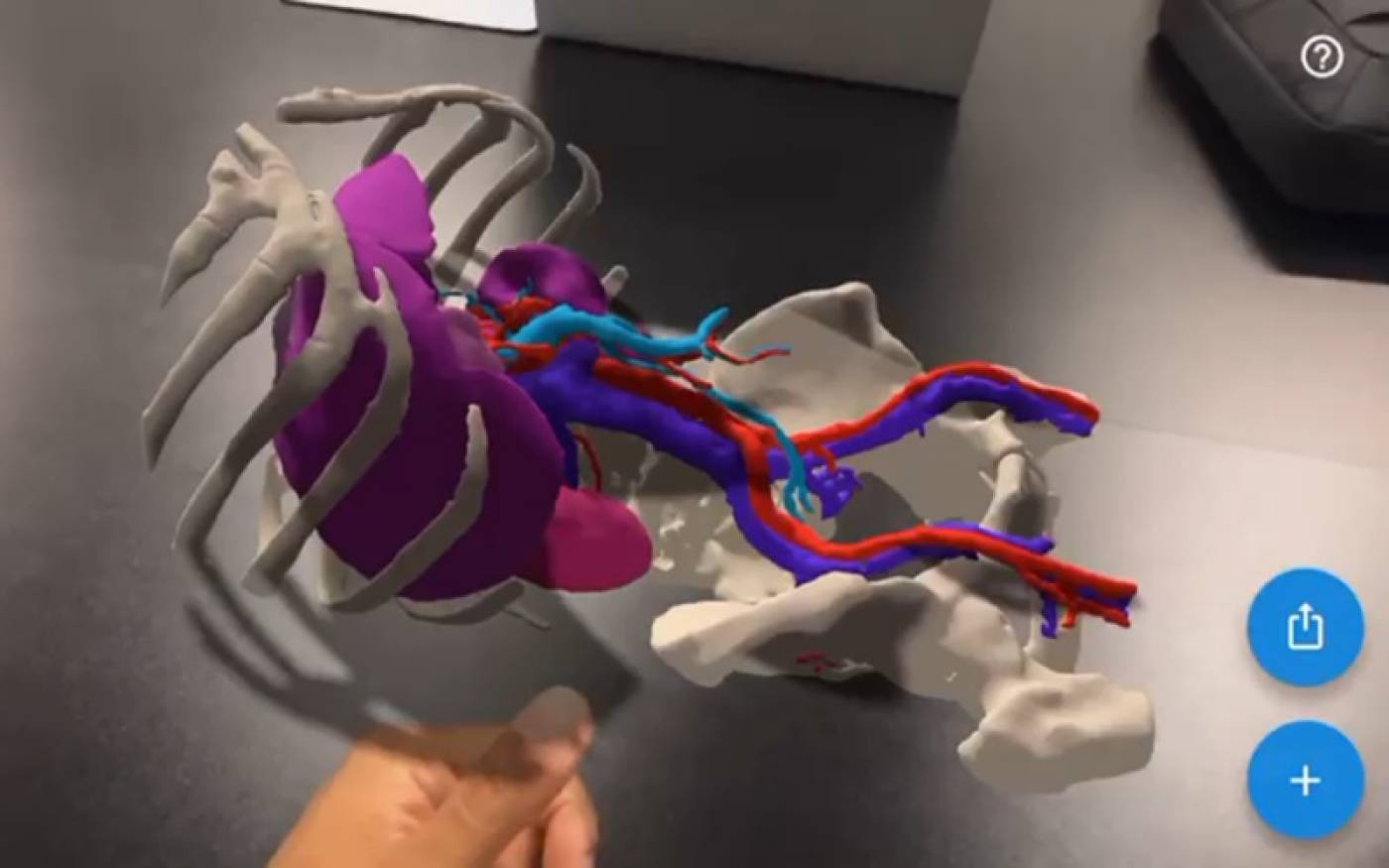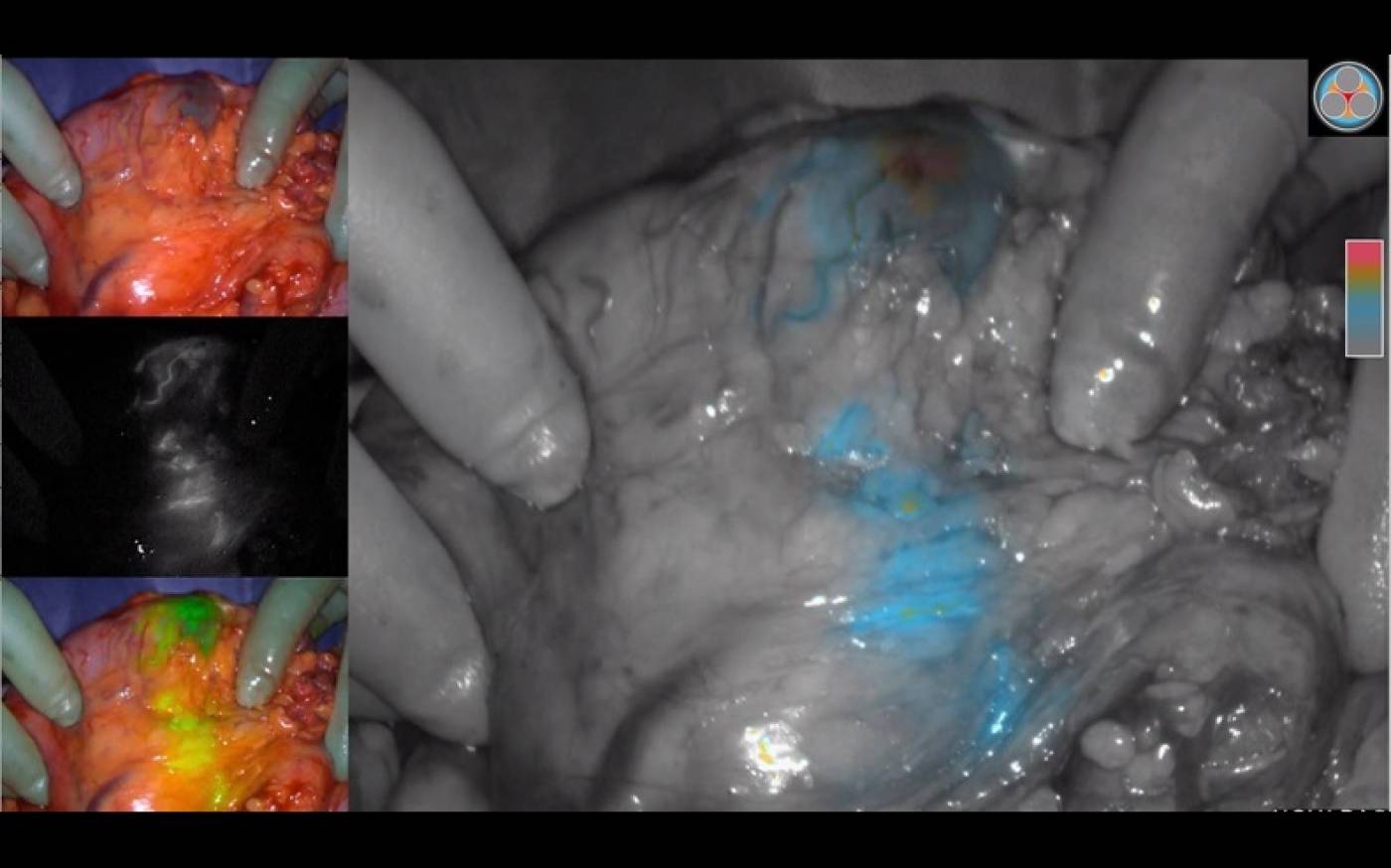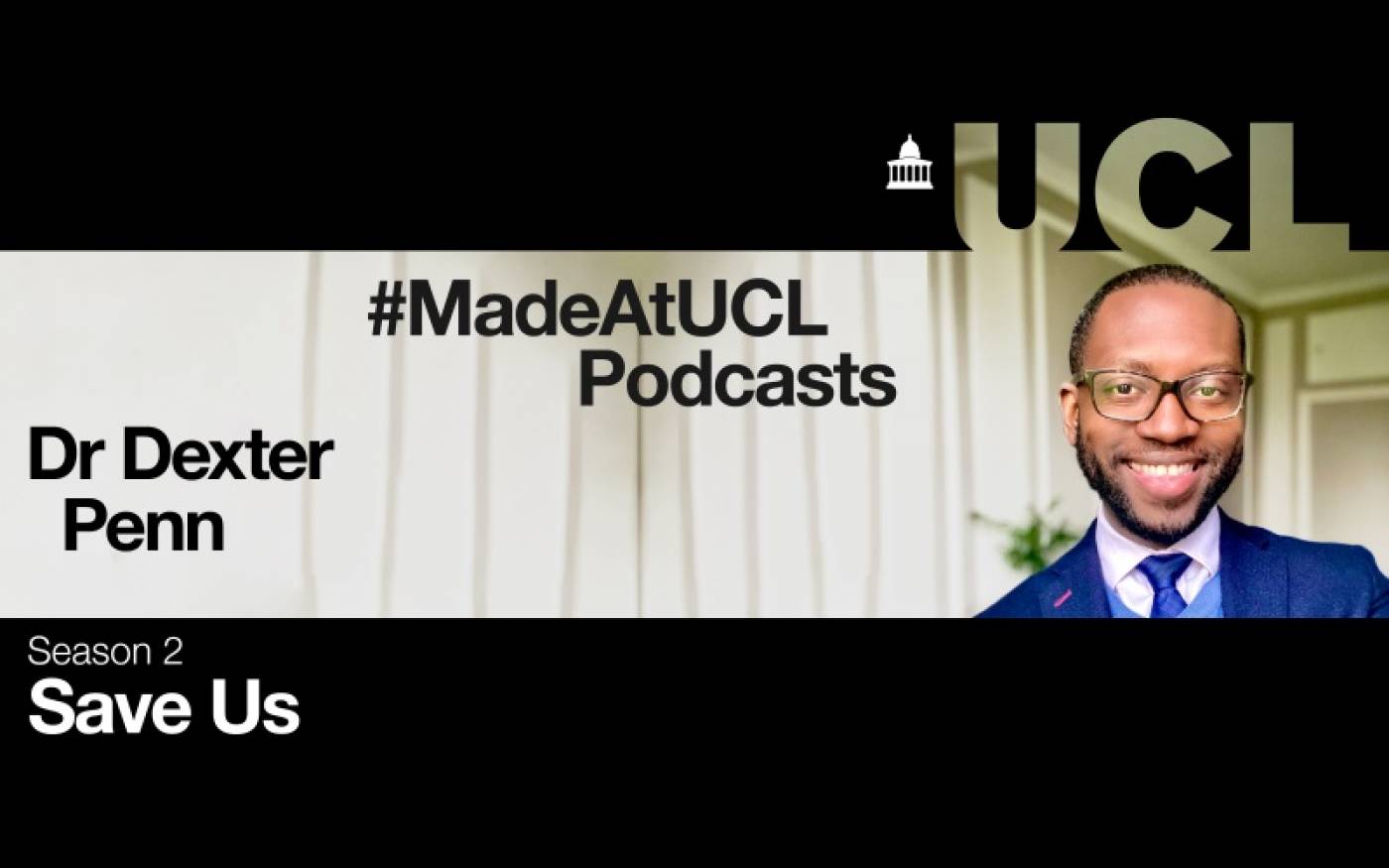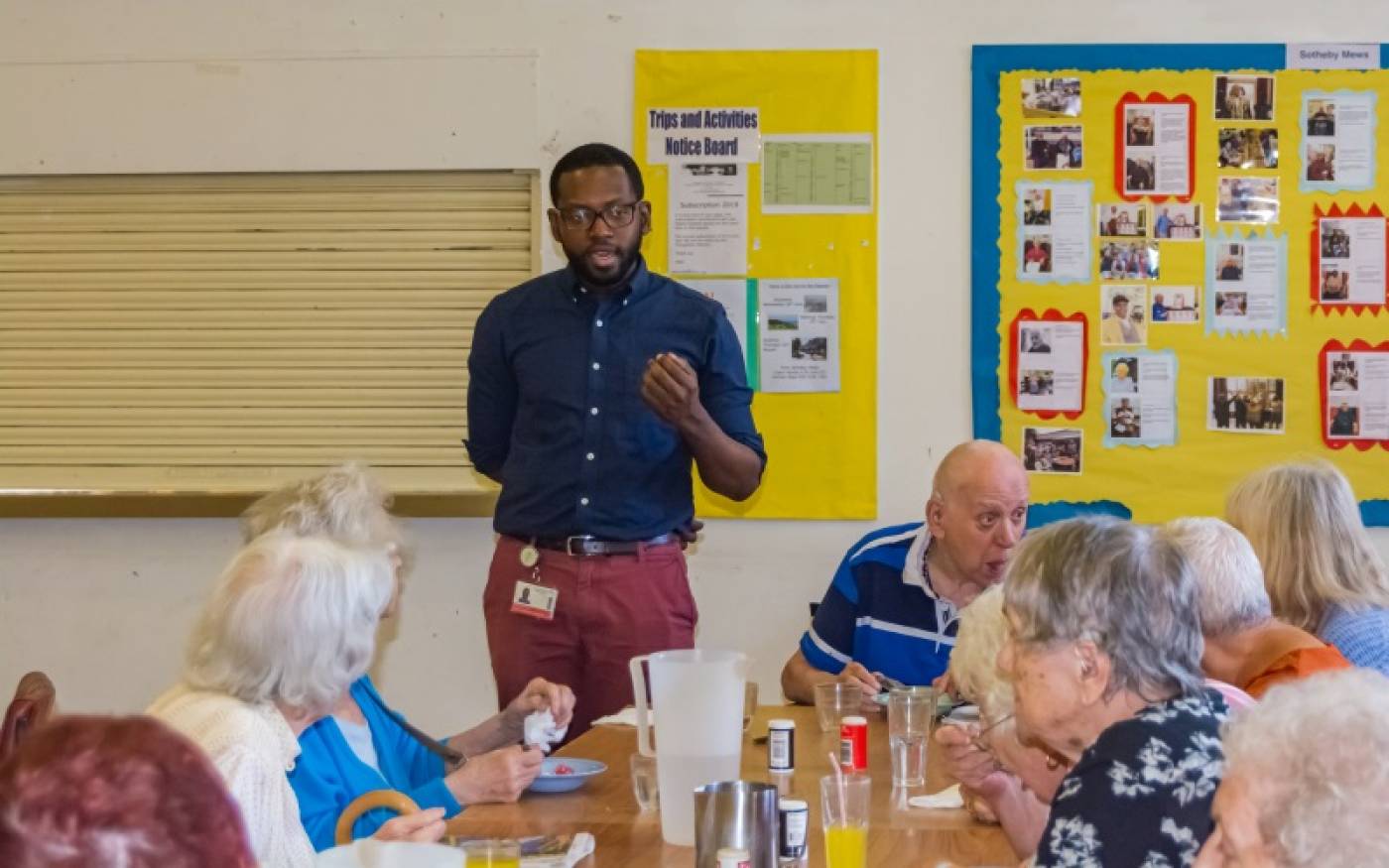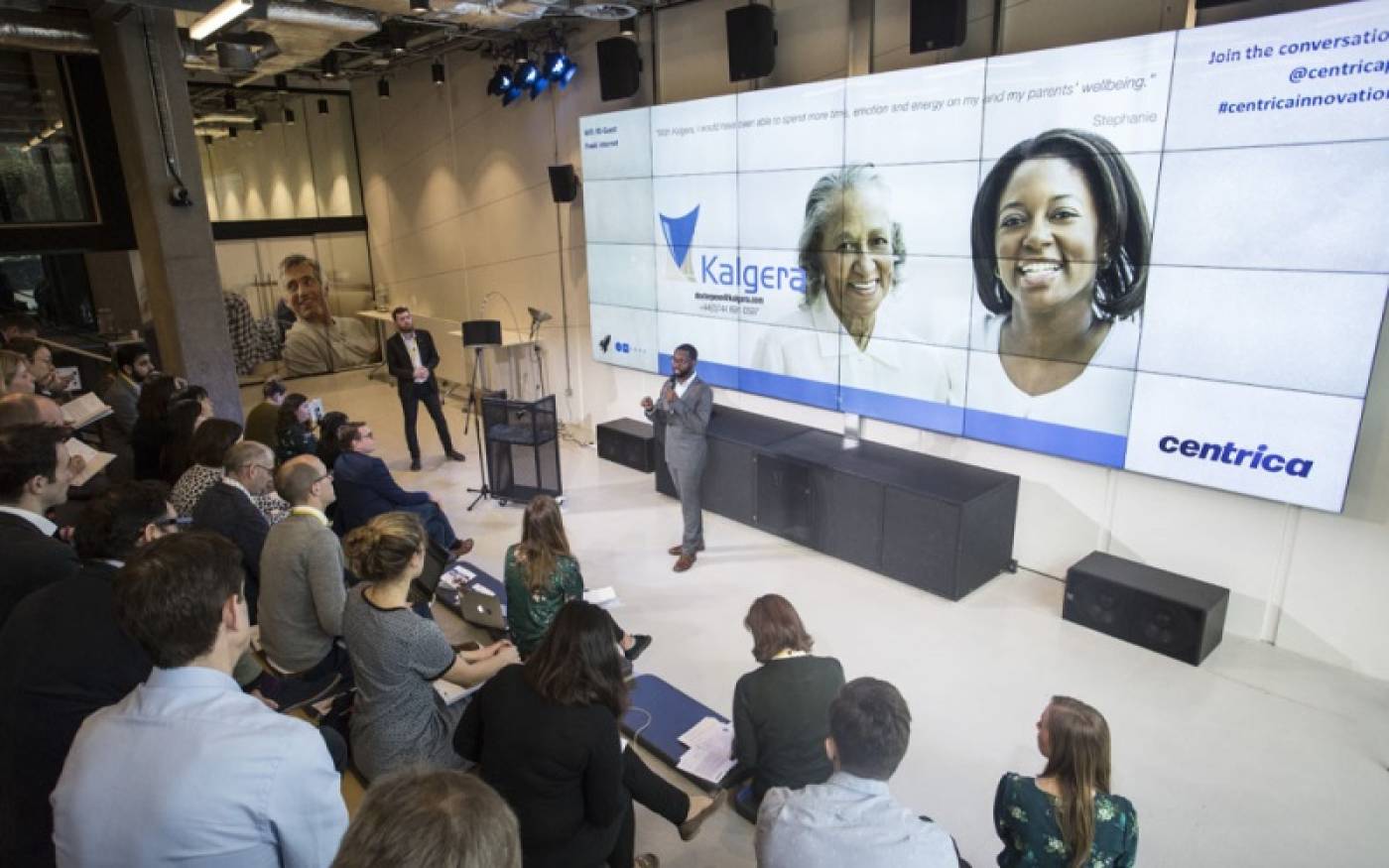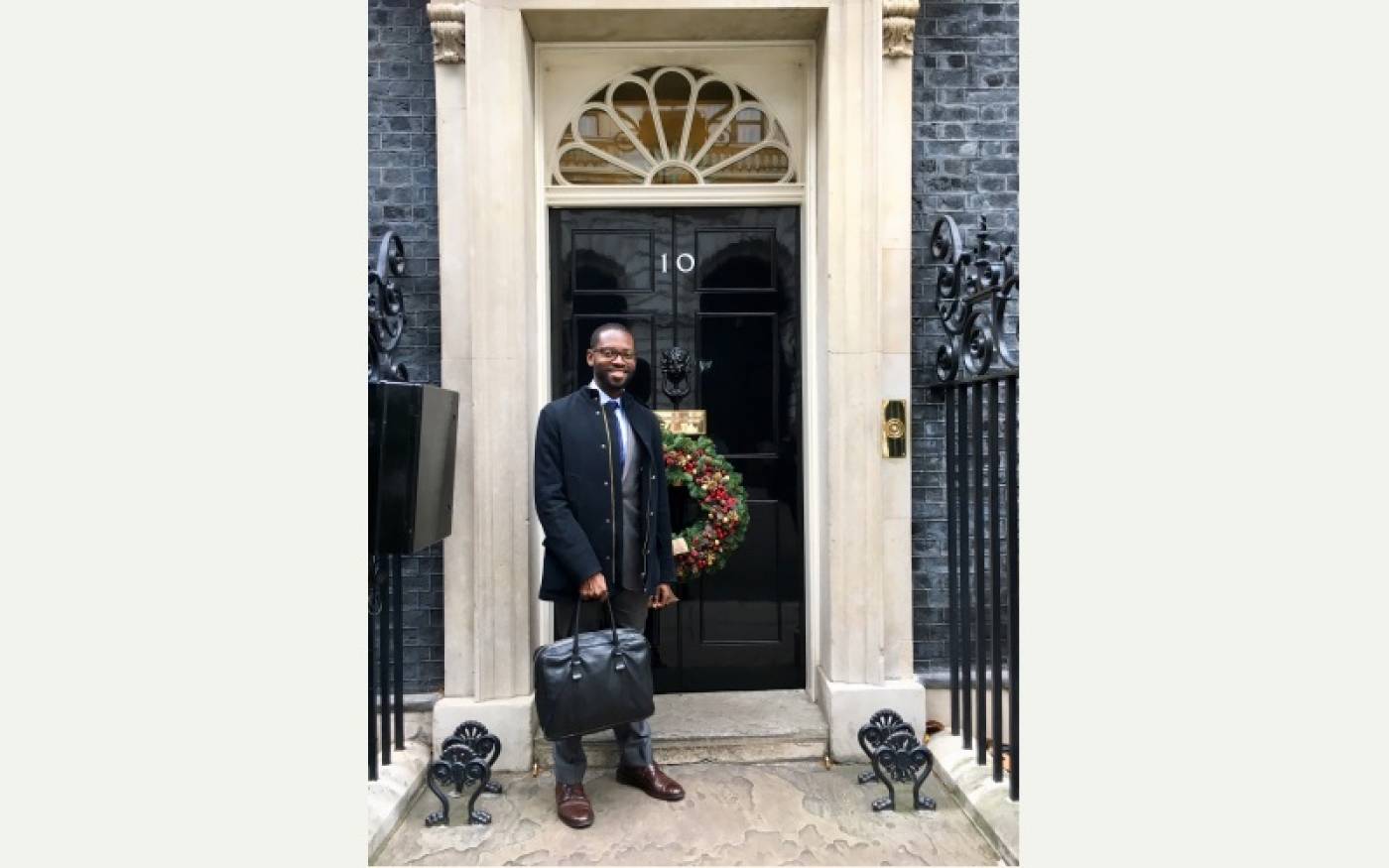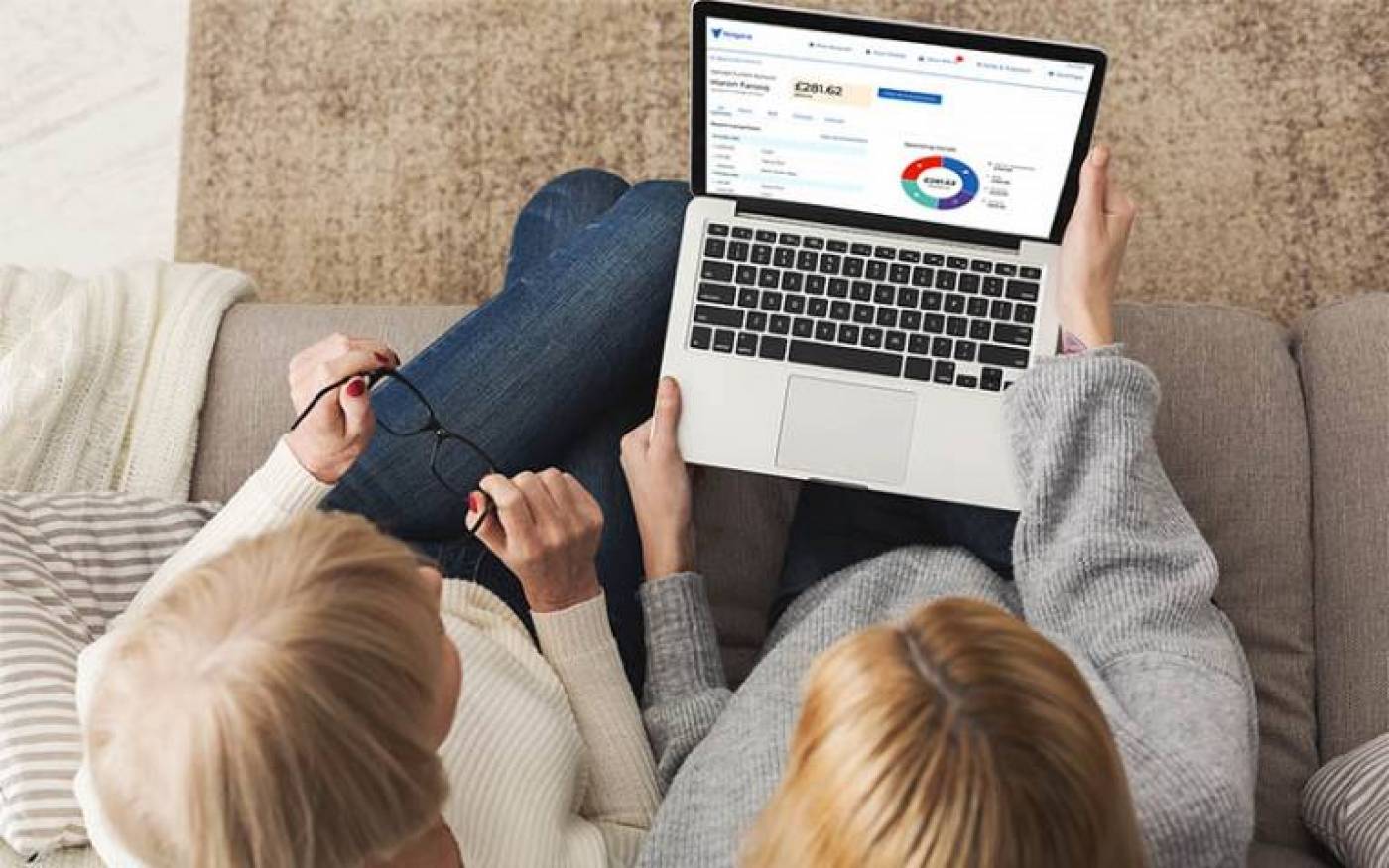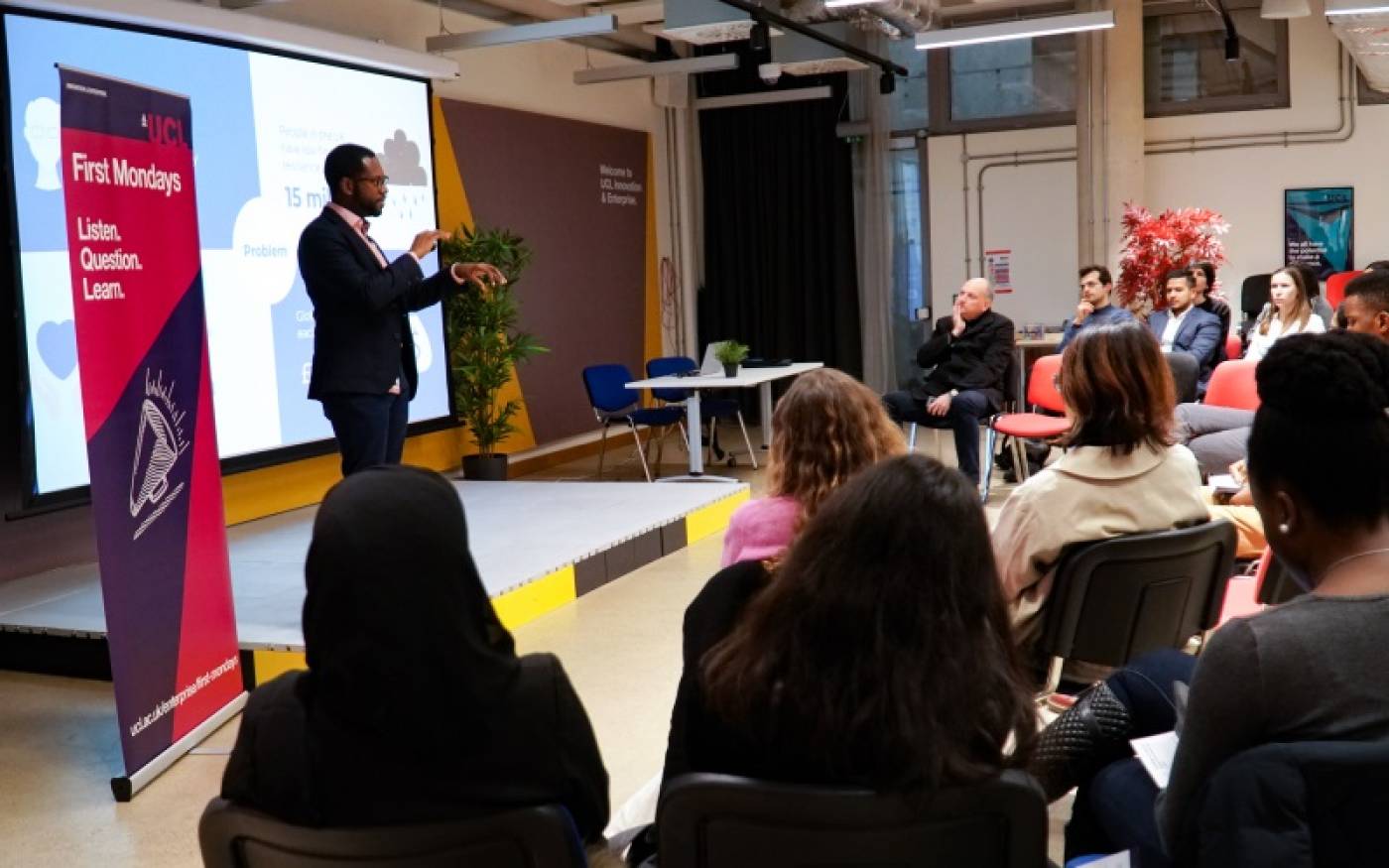S2 Ep4: Save Us
MORE ON THE STORIES
CREDITS
Sound effects
Huminaato Television turned on and off
Geronimo83 elephant
Martian museum crowds of children
16h_panska_stejskal_david ambient pub
Straget wine-glass sound
Eneasz parliament noises
Monotraum ship horn
InspectorJ (www.jshaw.co.uk) Plane sounds
SamuelGremaud CHAINSAW – 1
Luke100000 turning pages
MATRIXXX_ Beeping_Technology_03
InspectorJ (www.jshaw.co.uk) Dripping, Fast, A
Magnuswaker Pound of Flesh 2
Xtragamr Crazy barber
Matislav Chopping_small_wood_pieces
Freedomfightervictor Calculating
Fupicat Correct Bell
SpliceSound Transparency sheet, plastic sheet handling
Samfk360 Heart Monitor Beep
4ntony Robotic Arm
Music
Take a Tiny Train by Ray Catcher via the Blue Dot Sessions
Silk and Silver by Azalai via the Blue Dot Sessions
TRANSCRIPT
Cassidy Martin 00:03
Hello, I'm Cassidy and welcome to the fourth episode of series to have made it UCL the podcast. Do you ever get overwhelmed? I do all the time about so many things. And I'm not talking about the pandemic, although that is quite overwhelming as well. I'm talking about other things like the overwhelming threat of the end of the world, because of our inability to not be terrible to the planet, or eventually having to have this really massive surgery. And if the surgeon makes one false move, you're dead. our finances, I hate dealing with money, investing, savings, avoiding fraud, it's terrifying. Well, our three guests today are helping to save us from some of life's biggest threats. For example, the researcher and writer for whom
Mark Maslin 01:11
saving has become a new, meaningful word
Cassidy Martin 01:16
in his mission to combat climate change. The surgeon who is using smart surgery to protect his patients from
Manish Chand 01:24
unnecessary and ineffective treatments, sounds a little bit sort of cliche, but I want to save their suffering.
Cassidy Martin 01:31
And the doctor who has learned firsthand that treating patients doesn't mean just treating their symptoms, but the structural problems that can cause them as well.
Dexter Penn 01:42
To me saving, it's about understanding what matters to you, and simplifying your life to prioritise those things.
Cassidy Martin 02:01
So let's start with the biggest one. The one that's weighing on everyone's mind, or at least should be climate change. Sometimes it's difficult to know where to start when it comes to living a more environmentally friendly lifestyle. I've struggled myself, like when I'm trying to decipher which food product from the grocery stores are actually ethical and environmentally friendly, and not pretending to be through misleading packaging, or what environmental policy should I advocate for ones that politicians could realistically pass, and that could make a significant difference? Well, our first guest nubuck has the answers that will help you and the rest of our world navigate our way to a more sustainable existence.
Mark Maslin 02:52
This is Mark Maslin
Cassidy Martin 02:55
He's a professor of Earth System Science at UCL and an expert on climate change is living his childhood dream. So what first inspired you to want to study climate change?
Mark Maslin 03:18
As a kid, I'm so old that I can remember on our first colour TV, I watched the original series of life on earth. And this was just so mind blowingly different to anything we'd seen before. That was something that inspired me about the natural world. And I went, I want to be a scientist. Also, my poor parents had two boys. And actually on a rainy winter's weekend, what do you do with them. So in the olden days, they basically drove down into central London, parking was free, they throw us out into the museums. And so therefore, I spent many happy days being lost in the Natural History Museum, the Science Museum, and that really inspired me about the natural world. And so that's when I went off to university to study physical geography and geology, and then found that I actually quite like not being in the real world. And so then decided to do a PhD. And the rest, as they say, is history.
Cassidy Martin 04:22
When when did that switch? Do you think to climate change? Because I mean, obviously, climate change has been going on a long time, but I think as far as like a hot button thing that didn't come into existence till recently, really,
Mark Maslin 04:33
so are you saying that I'm so old that climate change was realised? I love
04:41
you talked about black and white TV.
Mark Maslin 04:47
It's a bit like when my students desperate in exams, right references, and I have had references Massillon, 1951. It's like, really, how old do you think I am? Right, you want me to answer the question? serious question there. So the interesting thing was, I went off to do a PhD looking at past climates. So I worked with sir Professor Nick Shackleton at Cambridge. And that really sparked my imagination about looking at the system as a global systems. When people ask me what am i as in what type of scientists, I usually say, a system scientist, because I believe the earth should be looked at as a complete system. So the oceans II atmosphere, the land, the human, all interact, and have to be seen as one thing. And I actually take that into all parts of my work. If I'm looking at human society, I'm still very aware that there's all these other connections, that mean, it is not ever isolated. And so that's why I started at Cambridge doing a PhD, I then went over to Germany to a postdoc when I started looking at older and longer term changes to try and understand the evolution of the global climate system. And it wasn't until I was brought back to London to work at UCL that I started thinking about the future, and using my knowledge of the past and how the climate system works, to actually then apply it to the future. And that's really important, because without our understanding of the past, it is really difficult to understand how greenhouse gases are going to react, how much that's going to affect the land system. And therefore what I've done is built a career, being able to span the whole of climate change from the death of the dinosaurs metody, I don't think I've gone any older than that, all the way through to the next 100 years of climate change and beyond.
Cassidy Martin 06:49
So you've recently written a book called How to save the planet. What was the reasoning behind writing the book.
Mark Maslin 06:58
The reason I wrote this book was because I have been studying climate change for about the last 2025 years. And I've written lots of worthy papers, I've even written some really worthy books. And the problem is that the people that read those books are already knowledgeable, they're already within the camp, they already get how bad the situation is. And so you're preaching to the converted. Now I wanted to write a book that everybody could pick up and I say, in the front, I say this is a complete different book. This is a book that you can quote down the pub in, quote, at a dinner party, you could even quote it in Parliament, if we could actually get them to the MPs,
Cassidy Martin 07:41
you brought up a really good point, which is something that I get frustrated sometimes with academia, like when I did some fieldwork in Panama, and we have these talks all the time. And there was all this really amazing research being done, and all these really important things, things that people need to know. But it wasn't getting out to the public. And I know sometimes when you do try to get it out to the public, that's a whole other issue. And so I think that's cool that you are trying to get that out in a way that other people can understand that is outside of academia, where you're still having the references and stuff. So you're still backing up what you're saying, but you're doing it in a way that people outside of the discipline can understand. So that's quite cool.
Mark Maslin 08:19
And I think people are interested in the facts, and also what they can do. So it's a very productive book. But actually, they don't want the backstory. It's about trying to get it down to clear messages that allow people to take the sense of the science and actually understand it and then go, Okay, this is true. What can I do? And that's where the book comes in, because it says, Hey, I'm telling you all the bad stuff. And then I'm going to tell you all the good stuff about how you can actually go in and help change the world.
Cassidy Martin 08:52
Could you tell us a bit about the bad stuff and what we could do to change the world.
Mark Maslin 08:59
So when we look at the human impact on the planet, we have to look at multiple drivers. Two key things is firstly, climate change. Because we are producing so much energy. We are mainly using fossil fuels to basically produce electricity to ship our materials to fly around the world. That's basically warming up the planet. But at the same time, what we're doing in many areas is then deforesting, we are cutting down ecology, to make way for agriculture, for new land for pastoralists, or for planting things like soya and therefore producing goods for the global market. And between the two of those, we are making particular areas more or more vulnerable. And so what we need to do is we need to turn that corner realise that planet Earth, and the natural system is there to support us. And there's only so much kicking you can give it before it gives up. And this book has four chapters at the end that says, if you're an individual, these are things you can do. If you're a company, these are things you can do. If you're government, these are things you really should do, and it helps you get reelected. And then the last one is, this is what the international community should be doing. Because it makes sense, and will actually lead to a better, safer world for everybody.
Cassidy Martin 10:41
Fantastic. I think it's great that you're breaking it down, could you let us know maybe one thing in particular that you think of for the individual, the organisation, the politics, and so forth, like what you would recommend your top priority,
Mark Maslin 10:55
I'll give examples. Because I refuse to give priorities. The reason being is because this book is for everybody around the world. And so what's really important is that different people have access to different powers. So when I talk about individuals, there are certain people that look at that and go, I just can't physically do that. It just won't work for me, you know, I'm not going to go and say to somebody in rural Nebraska, I'm really sorry, do not use your car. Because they're going to look at me go, really? How am I going to get my kids to school? How am I going to get to the farm to produce the food you need to save the rest of the world? So it's about using the ideas and seeing which works for you? Well, your back
Cassidy Martin 11:42
how to save our planet has lots of ideas and advice on exactly how to do that. So maybe now is a good time for you to tell us when and where can listeners buy how to save our planet.
Mark Maslin 11:56
So how to save our planet. The fax comes out in the sixth of May. It is available from all good book shops. But I think you're supposed to say that but you can order it online@penguin.com you might want to order it from your local online bookshop to help support them. And not those large giant companies that all of us have relied on unfortunately during lockdown.
Cassidy Martin 12:20
Yes, absolutely. Now that we are all going to be equipped with our planet Survival Guide, thanks to mark, let's turn our attention to another type of savings that needs addressing costly invasive, risky surgeries, we will probably all need to go under the knife at some point. It's a terrifying concept. The idea of someone cutting into your insides a wall you sleep, hoping that nothing goes wrong and at least in countries like where I'm from the US that you won't find yourself in a tremendous amount of debt afterwards. To help combat these issues. maneesha is research and practice focuses on a new approach called Smart surgery.
Manish Chand 13:14
My name is Manish Chand, I am Associate Professor of Surgery at UCL and consultant surgeon at University College London hospital.
Cassidy Martin 13:23
So to start out with Can you please tell us what smart surgery is and when did you first become interested in it?
Manish Chand 13:30
Okay, smart surgery is really a play on words, I suppose to try and bring the world of tech and technology into surgery in healthcare. So you know, we hear about smartphones, for example. And it's really trying to make surgery and healthcare sound more digital more technological.
Cassidy Martin 13:55
Smart surgery, which encompasses everything from data analysis, driving technological improvements to robots helping to perform surgeries is a long way from the humble origins of surgery.
Manish Chand 14:09
Surgery, in its current form in the UK dates back to the Renaissance period. And at the time surgery was actually performed by barbers and essentially lay people because the physicians who were thought to be the priest and the clergy, they weren't allowed to blood lit. So if you needed something done, which involved surgery, which usually meant chopping something off in those days, the physician or the clergyman couldn't do that because was against their principles. So you would then get people with skills to do with chopping things off, whether that be bits of wood, whether that's been bits of hair, and they would perform the surgery. So that's why my designated title as a surgeon is Mr. And my equivalent female colleague would be Miss and we're not called doctor because we are Part of the guilt of barber surgeons.
Cassidy Martin 15:02
Minish explained to me how modern surgery maybe hasn't changed so much in the past few centuries, at least not in comparison to the rest of society.
Manish Chand 15:11
Think back 25 years ago, there wasn't any Google, Facebook, iPhones and iPads, but now they're in our everyday life. We can't think about doing anything without all these technological bits of hardware and software. But I think the last five years or so we've really seen a push towards innovation being introduced into healthcare and in particular surgery. So that's really the background of smart surgery or smart healthcare.
Cassidy Martin 15:38
That's so interesting, right? You're saying about about the history of it, because I've read something where you said that it was like the technologies that it was behind, and that cameras are like from the 80s, or something that are like being used, like the technology wise.
Manish Chand 15:53
So so the technology that we often use is antiquated technology that data technology, people will be will be listening and would have watched a concert on TV over the weekend, or a film on Sky or Netflix or even the football, for example. And they would want to see, well, I want to watch this in high definition, I really need to see the clarity of what's going on. If you think that we're using equipment from the 80s to do operations, and people just accept it. And like, Yes, okay, I don't mind going down to a PC World and buying a new TV to watch the football this weekend. But actually, you know, what you can do my operation with with this, you know, archaic 1980s footage, which is of resolution that that you just wouldn't accept in any other part of your leisure life. So I suppose that that's one of the difficulties when we see the slow permeation of technology, it's a bit too slow, perhaps
Cassidy Martin 16:48
speaking of that, and people having trouble accepting it, a lot of what I read about the smart surgery, they talk about AI. And I wonder if that's part of it. Because I know, when I hear the term AI, you know, there's a lot of negative things that come to mind, because you think of like in the movies and things that you watch, like x mechanise, or something, and the idea of someone giving a robot artificial intelligence, and then it goes and takes over the world or something that's, you know,
Manish Chand 17:18
takes over humans. So and then surgery is also like a scary thing, right? Because you're going to sleep someone's cutting into you. And so you combine those two things. And then it's kind of terrifying. I think AI has been a buzz phrase word for a good few years. And actually, we use it to describe a whole variety of different things. In effect, the way that we understand AI and how it's used and how it has been used over the last decade or so is really in data analysis. It's about predicting things through data. So it's advanced that advanced statistics. So if we think of it as an umbrella term, and within that umbrella term, there are lots of different exciting things that we can try and harness and put into healthcare. So something simple, which is an everyday use, if you look at your iPhone, your phone will be able to pick out every picture that you are in, in your photo library. So that's artificial intelligence, because the algorithm is working on computer vision, a particular sub branch of artificial intelligence, and it's looking for features within each of those pictures within the scene to then say, look, this is you, I'm going to pick these out, these are all the pictures with you in it, and you'll find that it's not 100% accurate, because there'll be some pictures of somebody that looks a little bit like you in it as well. But in effect, it's the same technology that we can start thinking about when we talk about diagnosing lung cancer, lung cancer is a picture in the form of an X ray with a pattern on it. And some radiologists will position will be sitting in a dark room somewhere going through all of these x rays or looking at these pictures and saying, yep, from what I've learned from the rules that I've been given in my training, that looks like a cancer, and I am X percent confident, and to be 100% confident, I'm going to stick a needle in at some point with a biopsy. And we'll know for 100% that is the same as the accuracy of that algorithm. So why can't you use the same software and the same algorithm and the same computer vision technique that you're using previously on your phone to pick up pictures of yourself and use that in a healthcare setting to pick up people that might have had a lung cancer? The answer is you can because it's the same technology. And that's probably the most basic way to understand AI techniques in healthcare, but there's lots of other you know, weird a wonderful examples from predicting whether or not someone's going to turn up to their outpatient appointment with predictive data analysis. So there are lots of ways it works and it just takes time to permeate into the system.
Cassidy Martin 20:01
And then of course, you can do it remotely. And you can do more per day, I think as well, is that is that correct?
Manish Chand 20:07
Currently, how we work is that the patient is surrounded by the robot, which looks like a big spider sort of coming down on top of it with multiple arms. And I may be in an adjacent room, or somewhere in the same room, but further away. So I'm at a remote distance. And one of my roles is that of the Chief Medical Officer of this company is channel and what we've tested now the use of 5g surgery, and how we can use again, telecommunication technology to enhance our surgery. So in reality, if I wanted to, not that we were anywhere near doing this, or would want to do this, I could be sitting in London, and I could be operating on a patient in New York, I mean, that that, that that technology is there, and we've tested it, and it works.
Cassidy Martin 20:53
I asked when he when he thought the potential of smart surgery might be,
Manish Chand 20:56
I think, rather than actually doing surgery at such remote distances, where this works better when we're looking at precision surgery. And technology is mentoring people at remote distances. So I can now join in on a surgery that may be taking place somewhere in Africa or Asia, where they're maybe not quite as experienced, but competent. And they're keen to continue and developing their programme surgical programme. But they just need someone looking over their shoulder to say, actually, look, that's not quite right. That's not quite right. So I don't need to physically do the surgery for them. But if I but if I've got a screen, which shows me what they're doing, and I'm able to annotate on the screen, and I'm able to converse with them, and they're able to hear me and there's no time lag because we're using 5g, then then that's the kind of thing which actually produces immediate real time benefits rather than, again, this science fiction thing of, of sort of sitting in your living room operating on someone that's several 100 or 1000 miles away.
Cassidy Martin 21:53
What is it about smart surgery that keeps you interested and makes you want to get the world out and what keeps you motivated?
Manish Chand 21:59
The key driver for me at the moment about smart surgery is the potential of it just seems limitless to me. We're at the beginning of this really exciting journey. And I think certainly being fortunate enough to speak to colleagues of mine across different disciplines and seeing what goes on in the engineering world in the computer science world. And just seeing all the marvellous creations that we see in different industries, the thought of how AI and others could can incorporate that into healthcare setting just seems so exciting. You know, it is it is the really early part of this journey. And I think we're going to see huge, huge increase in this in this space. an interest in this space, healthcare is not you know, it's always had a very defined pathway. But it's almost like Pandora's box is now open. And it's like, right, what bits can what tools can we grab from there and there and there and try and move things around. And it's that kind of excitement that we're not reinventing the wheel. We're just using things that people have already created in a different setting.
Cassidy Martin 23:13
Minish is not the only medical professional using modern technology to help his patients.
23:22
Let me tell you a story.
Cassidy Martin 23:24
That was Dr. Dexter Penn. He is a clinical research associate in the dementia research centre here at UCL. And he's the mastermind behind kogarah. It's an app that's taken on a huge challenge of protecting those vulnerable to financial fraud. Back to Dexter story.
Dexter Penn 23:43
You know, one day, patient pulled out a letter. And it turns out that all of this time, they had a huge credit card debt that they were being chased for that was giving them panic attacks, and you know, a lot of really nasty emotional impacts. And I wrote a letter to the company to say, Please stop, can you consider working and maybe writing some of this off, and then she was better, because they stopped chasing her. And so I would say that was my very first therapeutic letter. That was my intervention was just writing a letter. And so you know, all of this going on for so many years just by writing this letter and helping that person sort out that that situation with their debt was much better than me prescribing any medications or doing any more MRI scans or anything else.
Cassidy Martin 24:34
Dexter really seems to like to find ways to help his patients outside of just treating their medical condition. Do you feel that it's important that healthcare systems provide resources for people's material well being, like helping prevent financial fraud, instead of only focusing on treating symptoms,
Dexter Penn 24:56
the line between decicco Mental care, and all of the other stuff that we all are dealing with as messy humans. There's a direct correlation between not what's happening in your social life with your physical and mental health. And ignoring those elements. I think it is, you know, falling short of the mark. And I think there is much more that can be actually done to improve that. And it's not something that you inherently are taught in your training. And it's something that you learn while you're on the job and during your practice,
Cassidy Martin 25:40
and it's from Dexter's experience on the job that led to the creation of his app. What is Kaga?
Dexter Penn 25:47
kogarah is a tool that helps to identify people that are at risk of being financially abused by looking at their transactions and the history of those transactions running over time.
Cassidy Martin 26:05
I saw that Calgary uses like AI tools and a financial resilience score to identify possible financial vulnerabilities. What factors are used to determine this score?
Dexter Penn 26:17
There's no real way to say that someone is fundable over all, it's actually something that's a bit nebulous, that this whole concept of fungibility and many facets to it. And I think looking at the data, and the way that we do it is very different because we're taking a scenario based approach based on real events that we've catalogued from speaking with so many people and their and their families. And we also used our stakeholder working group that includes real carers of people living with dementia and other conditions and people working with people with disabilities and people working within financial services in the fraud space. And we've we've taken that approach, because we realise that you have to be much more focused in in the way that you're going through the data. So we're taking that and we're bringing together my medical and dementia research background, and we're looking at it through a specific neuro psychological lens. And looking at the different components of financial decision making capacity and looking at data and comparing how that looks for for an individual and comparing that trend over time to see does it look like it's currently doing the same? Is it getting worse? Is it getting better? And what are the drivers for that? So we'd be able to have an overall view about risk. But it's something that is not data mining, per se, but it's really been thoughtfully designed and executed. And the AI, it's pretty much taking my background, and my colleagues working on the regulatory side, pulling that all together, and being able to go through the data in a thoughtful way.
Cassidy Martin 28:10
Was there an incident or something that led you that was like, Okay, this is my mission,
Dexter Penn 28:15
27 million people, more than half of adults in the UK show some signs of vulnerability. And this is not a problem that's going away. And risk. You know, looking at this from a preventative point of view, we want to see what the risk actually looks like, and to be able to better advise and protect those those individuals. And that's what it's all about. So, my wanting to care for people and having the close relatives that have been exploited myself, you know, it's been something that I felt is really important. And that's really been driving me to keep going with this all of this time.
Cassidy Martin 28:56
I can't believe I saw that really struck me the idea of like half a half of the population, this could affect what are all the factors that that could lead to that. I mean, when you're saying half does that mean just like any kind of mental health problems like would that include, like depression, for instance, or anxiety or things like that?
Dexter Penn 29:15
So first off, what is financial vulnerability. So financial vulnerability is any characteristic, which could lead to someone having a poor outcome in terms of their experience with using a financial product or service and the different components of it and the drivers, they are really looking at different aspects. So you've got your capability, so your ability to understand and use financial information, not people that have low resilience. So low resilience is that well, you don't have a buffer in your in your bank account. And if your cost of living were to go up by 50 to 100 pounds, you wouldn't be able to meet that it's plain and simple. You don't have resilience to deal with unexpected things and having life events, bereavement, breakdown of a relationship, divorce, moving house, changing jobs, like anything that's sort of really makes a big change in your life, that can be a life event. And you're less focused, you're distracted, you make mistakes, as moving house a couple of years ago, and yeah, I got a scam call from HMRC. It took, you know, a little while to think, Oh, yeah, I almost funded to the person. And then I was like, Oh, no. And then I put down. But if you're distracted, you just think, okay, yeah, that's fine. It's my bank that's calling something's wrong, I need to verify, then you then all of a sudden, see your bank account is cleared out. So yeah, life events can be factors and health events, anyone that has been with a relative on the journey through cancer treatment, got to travel to the specialist appointments, you've got to take time off work. And a lot of those health events that also can affect your ability to manage your finances because of cognitive problems. And that could be dementia, or it could be from a mental health problem. But effectively, in those situations, it's not just fraud. But you know, you could be mis sold a product by a legitimate financial institution, or you could be excluded from a product because of those factors or combination of those factors. And they can change over time. And it can happen to any of us at any time. So at any one time, 53% of adults can be showing some of these characteristics of potential vulnerability.
Cassidy Martin 31:50
And how is Calgary helping with this
Dexter Penn 31:52
from going to different groups care support groups, and really talking to people that have been through like really difficult situations, whether they're a parent looking after a child with a mental health problem, or someone that's, you know, taking care of spouse or partner, the common thread is that a lot of these problems are very difficult. If you don't have enough information, and sometimes the path to getting the information, it's not clear, and you really can't do anything about something if you're sort of, you know, shooting in the in the dark. So what really is important is to allow people to be able to share that information when it's necessary and have conversations about about things. And that's where things started off on a case by case basis. But really, if we're looking at the way that the regulator has been moving with things, it needs to be at a much larger scale. So the Financial Conduct Authority, put out some some guidelines, looking at customer friendly ability, and they've been doing more of this over the last three or four years. But yeah, that's that's what we're working on row, just really focusing on trying to get that impact at a larger scale. And to be able to do that in a in a consistent way, because we done a successful pilot with a building society in the UK last year looking at this and we've worked with the FCA and we've been on the National Cybersecurity centre cyber accelerator, and also taking the learnings from the project that we did with the 100,000 pound grant from from nest stone. Bringing that all together, we've been able to get the support of existing investors to really take all of the learnings and repackaging it into something that would be able to serve many more people at a much larger scale than then we'd originally been able to do so watch this space.
Cassidy Martin 34:05
If you'd like to learn more about the app, you can visit their website@calgary.com. So what have we learned from today? One, we don't have to make drastic life altering changes to help save the planet. There are all kinds of practical things we can do and having a guide like the one Mark wrote will help us navigate our way to a more sustainable way of life to AI is our friend, especially when it comes to going under the knife and new technological advances means a future with less invasive surgeries, thank god and three, most of us at any given time, are vulnerable to financial fraud and could use a little assistance Thank you for listening to made at UCL the podcast. To listen to previous episodes or find out about life at UCL visit www.ucl.ac.uk forward slash may dash at dash UCL, or subscribe wherever you listen to this podcast. This episode was presented by me, Cassidy Martin and produced by Cerys Bradley. It featured music from the blue dot sessions and additional sounds from freesound.org. A special thanks to Mark, Manish and Dexter for sharing their time and expertise. This podcast is brought to you by UCL Minds, bringing together UCL knowledge, insight and expertise through events, digital content and activities that are open to everyone. I hope you enjoyed listening as much as I enjoyed interviewing our guests this month. Thanks again for stopping by. Take care of yourself and each other
 Close
Close


